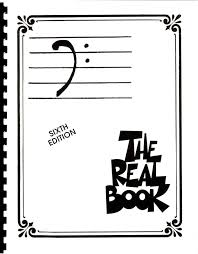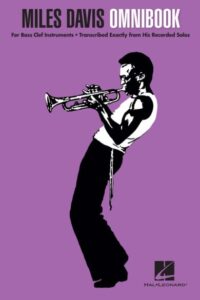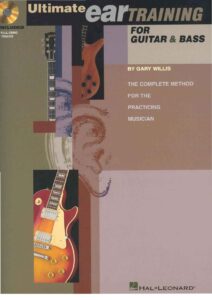Table of Contents
Remebering Charlie Haden, born on this day in 1937 (1937-2014)
Come join us now, and enjoy playing your beloved music and browse through great scores of every level and styles!
Can’t find the songbook you’re looking for? Please, email us at: sheetmusiclibrarypdf@gmail.com We’d like to help you!

Best Sheet Music download from our Library.

Please, subscribe to our Sheet Music Library.
If you are already a subscriber, please, check our NEW SCORES’ page every month for new sheet music. THANK YOU!
Charlie Haden: The Resonant Conscience of Jazz Bass
Charlie Haden wasn’t just a bassist; he was a foundational force, a sonic philosopher, and the resonant heartbeat of some of the most transformative music in jazz history. His career, spanning over five decades, traversed the avant-garde frontiers with Ornette Coleman, explored the depths of song with Keith Jarrett, championed global folk traditions, and carved out a uniquely lyrical and profound space for the double bass. More than a virtuoso of technique, Haden was a master of sonic space, emotional depth, and political conscience, leaving an indelible mark on the art form.
Roots: Missouri Soil and Family Harmony (1937-1957)
Born in Shenandoah, Iowa, in 1937, Charles Edward Haden’s musical journey began literally with his first breath. His family, steeped in the rich tradition of American folk and country music, performed as the Haden Family on radio stations across the Midwest during the 1930s and 40s. Young Charlie sang on the show from the age of two. This early immersion in melody, harmony, and the raw emotional power of folk song became the bedrock of his musical identity, even as his path diverged dramatically. A bout of bulbar polio at 15 damaged his vocal cords, ending his singing career but serendipitously turning his focus entirely to the double bass.
Drawn by the burgeoning West Coast jazz scene and the progressive pedagogy of the Westlake College of Music, Haden moved to Los Angeles in 1957. He quickly immersed himself, playing with legends like Art Pepper, Hampton Hawes, and Paul Bley. It was here, in the fertile, experimental environment of late-1950s LA, that he encountered the visionary saxophonist Ornette Coleman.
The Liberation of Sound: Revolution with Ornette Coleman (1958-1960)
Haden’s meeting with Coleman was seismic. Coleman’s concepts of “harmolodics” – liberating melody, harmony, and rhythm from traditional constraints – demanded a bassist who could abandon walking bass lines and chordal functionality to become an equal melodic and rhythmic partner. Haden was that bassist. His playing on the groundbreaking albums “The Shape of Jazz to Come” (1959), “Change of the Century” (1960), and “This Is Our Music” (1960) was revolutionary.
- Harmolodic Foundation: Haden didn’t just support; he conversed. His lines were melodic counterpoints, often independent yet intrinsically linked to Coleman and Don Cherry’s flights. He provided a flexible, interactive harmonic and rhythmic foundation that was free yet cohesive.
- Tonality as Emotion: Haden possessed one of the most distinctive and beautiful tones in jazz – deep, woody, resonant, and profoundly warm. He drew incredible sustain and vocal-like qualities from the instrument, making every note sing with emotional weight. This rich tonality became an anchor of beauty amidst the unfamiliar structures.
- Time Feel: His sense of time was elastic yet rock-solid. He could imply pulse without explicitly stating it, creating a fluid, breathing rhythmic environment perfectly suited to Coleman’s vision.
This period established Haden as a fearless pioneer, a bassist who redefined the instrument’s role in ensemble playing and helped birth the Free Jazz movement.
New York Crucible and Expanding Horizons (1960s-1970s)
Relocating to New York in the early 60s, Haden became a central figure in the avant-garde scene. He played with Archie Shepp, Albert Ayler, John Handy, and Carla Bley (beginning a lifelong personal and musical partnership). However, his most significant collaboration of this era, besides Coleman, was with pianist Keith Jarrett.
Joining Jarrett’s “American Quartet” (with Dewey Redman and Paul Motian) in the late 60s, Haden found another ideal partnership. Jarrett’s music, while often more structured than Coleman’s, shared a deep connection to folk, blues, gospel, and open improvisation. Haden’s grounding in folk music resonated perfectly. His bass provided a profound lyrical depth and earthy foundation for Jarrett’s ecstatic explorations, heard masterfully on albums like “The Survivors’ Suite” (1976) and “Eyes of the Heart” (1979).
The Voice of Conscience: Liberation Music Orchestra (1969-Present)
Haden’s political consciousness, ignited by the Civil Rights Movement and the Vietnam War, found its most powerful musical expression in the Liberation Music Orchestra (LMO). Co-founded with composer Carla Bley in 1969, the LMO was a large ensemble project explicitly dedicated to social justice and musical freedom.
- Musical Tapestry: The LMO blended avant-garde jazz with Spanish Civil War songs, South American folk melodies (like “El Quinto Regimiento,” “Song for Ché”), spirituals, and original compositions. It was a global, politically charged sonic tapestry.
- Collective Improvisation: While featuring intricate Bley arrangements, the core remained collective improvisation, allowing individual voices (including Haden’s deeply emotive bass) to emerge within a powerful ensemble statement.
- Enduring Statement: The self-titled debut “Liberation Music Orchestra” (1969) is a landmark album of politically engaged art. Haden revived the project periodically throughout his life (e.g., “Ballad of the Fallen” (1982), “Dream Keeper” (1990), “Not In Our Name” (2005)), consistently addressing contemporary struggles with musical urgency and beauty. The LMO became Haden’s most direct musical testament to his belief in freedom and human rights.
Quartet West: Noir, Nostalgia, and Lyrical Mastery (1980s-2000s)
In the mid-1980s, Haden formed Quartet West (initially with Ernie Watts on sax, Alan Broadbent on piano, and Billy Higgins on drums, later featuring Larance Marable and Rodney Green). This ensemble showcased a different, yet equally profound, facet of his artistry.
- Cinematic Soundscapes: Quartet West evoked the atmosphere of classic film noir and the golden age of Hollywood and radio. They reinterpreted standards (“My Foolish Heart,” “Body and Soul”), blended them with snippets of old radio shows and movie dialogue, and featured Broadbent’s lush arrangements.
- Lyrical Intimacy: Haden’s bass playing here reached new heights of lyrical expression. His solos were masterclasses in melodic storytelling, imbued with deep nostalgia, tenderness, and a profound sense of song. Albums like “Haunted Heart” (1991) and “Always Say Goodbye” (1993) are achingly beautiful.
- Bridge Between Eras: Quartet West demonstrated Haden’s unique ability to connect the emotional core of pre-bop song forms with the harmonic sophistication and improvisational freedom of modern jazz.
Global Citizen and Collaborator:

Haden’s musical curiosity was boundless. He consistently sought collaborations that bridged genres and cultures:
- Magico: A sublime trio with Brazilian guitarist Egberto Gismonti and Norwegian saxophonist Jan Garbarek, exploring ethereal soundscapes and folk influences.
- Beyond the Missouri Sky: A Grammy-winning duet album with fellow Missourian Pat Metheny, a deeply personal exploration of American roots music, folk songs, and original compositions, highlighting shared heritage and profound musical empathy.
- Nocturne: Exploring the rich tradition of Cuban and Mexican boleros, showcasing his ability to inhabit diverse musical languages with authenticity and deep feeling.
- Collaborations: He worked with a staggering array of artists, from Chet Baker and Gonzalo Rubalcaba to Rickie Lee Jones and Beck, always bringing his unique voice and integrity.
Pedagogue and Legacy:
Haden co-founded the Jazz Studies program at the California Institute of the Arts (CalArts) in 1982, profoundly influencing generations of bassists and musicians. He emphasized the importance of melody, listening, emotional honesty, and finding one’s unique voice over mere technical prowess. His own playing was the ultimate testament to this philosophy.
The Sound Itself: Haden’s Bass Voice

Haden’s technical approach was inseparable from his musical intent:
- Tone: Deep, resonant, woody, with incredible sustain and warmth. He often played with a high action and used gut strings, contributing to his distinctive sound.
- Phrasing: Deeply melodic, vocal-like, with a relaxed yet authoritative sense of time. He valued space and silence as much as sound.
- Harmonic Concept: While a master of traditional harmony, he excelled in modal and free contexts, often implying harmony through intervallic relationships and pedal points rather than strict chord changes.
- Interaction: He was the quintessential ensemble player, listening intently, supporting, challenging, and conversing with his fellow musicians.
Personal Struggles and Triumph:
Haden’s life wasn’t without challenges, including a period of heroin addiction in the 1960s that led to incarceration. His recovery and subsequent dedication to his family and music stand as a testament to his resilience. He was awarded a Grammy Lifetime Achievement Award in 2013, a fitting recognition of his vast contributions.
Enduring Resonance:
Charlie Haden passed away in 2014, but his resonance continues. He redefined the bass not just as a timekeeper or harmonic anchor, but as a primary vehicle for profound melodic expression and emotional depth. He fearlessly explored freedom while never losing touch with the fundamental power of song. He fused political conviction with transcendent beauty.

Whether anchoring the avant-garde fury of Coleman, weaving lyrical magic with Jarrett, sounding the alarm with the Liberation Music Orchestra, or evoking smoky nostalgia with Quartet West, Charlie Haden’s bass was always the sound of deep humanity, unwavering conscience, and timeless musical truth. His legacy is the enduring power of sound imbued with heart, conviction, and an unshakeable connection to the roots of human expression.
Browse in the Library:
Or browse in the categories menus & download the Library Catalog PDF:
